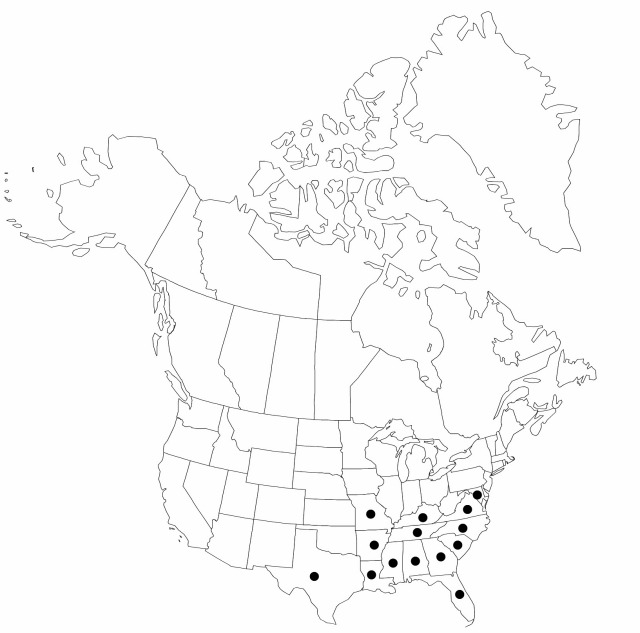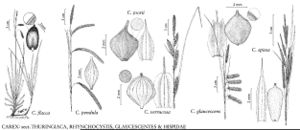Difference between revisions of "Carex joorii"
Proc. Amer. Acad. Arts 22: 72. 1887.
FNA>Volume Importer |
FNA>Volume Importer |
||
| Line 47: | Line 47: | ||
|publication year=1887 | |publication year=1887 | ||
|special status= | |special status= | ||
| − | |source xml=https://jpend@bitbucket.org/aafc-mbb/fna-data-curation.git/src/ | + | |source xml=https://jpend@bitbucket.org/aafc-mbb/fna-data-curation.git/src/f6b125a955440c0872999024f038d74684f65921/coarse_grained_fna_xml/V23/V23_771.xml |
|genus=Carex | |genus=Carex | ||
|section=Carex sect. Glaucescentes | |section=Carex sect. Glaucescentes | ||
Revision as of 19:10, 24 September 2019
Culms to 125 cm. Leaves: sheaths glaucous, fronts indistinctly veined, veins not persisting, apex thin, truncate or irregularly convex; blades 120 cm × 7–10 mm, glabrous. Inflorescences with 5–7 spikes, 30 cm; peduncle of lateral spikes to 6 cm; proximal bracts equaling inflorescences, 3–6 mm wide; lateral spikes divergent, 3–6 cm × 6–8 mm. Pistillate scales shorter and narrower than perigynia, apex acute, awn to 3 mm. Perigynia strongly divergent, red-brown, angles veined, faces prominently 6–8-veined, sessile, widely elliptic or somewhat obovate, 3.5–4.5 × 2.8–3.2 mm, base rounded, apex ± truncate proximal to beak, densely papillose with low, oblong or, rarely, minute, rounded papillae, not markedly glaucous; beak 0.3–0.5 mm, entire or minutely bidentate, teeth to 0.1 mm. Achenes rhomboid, 2.5–3 × 2.5–3 mm, base conspicuously broadened.
Phenology: Fruiting Aug–Sep.
Habitat: Seasonally saturated or inundated soils in moist, swampy, or bottomland woods, or stream banks
Elevation: 0–800 m
Distribution

Ala., Ark., Fla., Ga., Ky., La., Md., Miss., Mo., N.C., S.C., Tenn., Tex., Va.
Discussion
Carex joorii is more robust than C. glaucescens and can be distinguished from C. glaucesens and C. verrucosa by the acute apex of the scale body, the strongly veined, squarrose perigynia with low, flattened papillae, and the broadened base of the achene. Occasional specimens have been observed with papillae characteristic of C. glaucescens; such specimens may result from hybridization.
Selected References
None.
